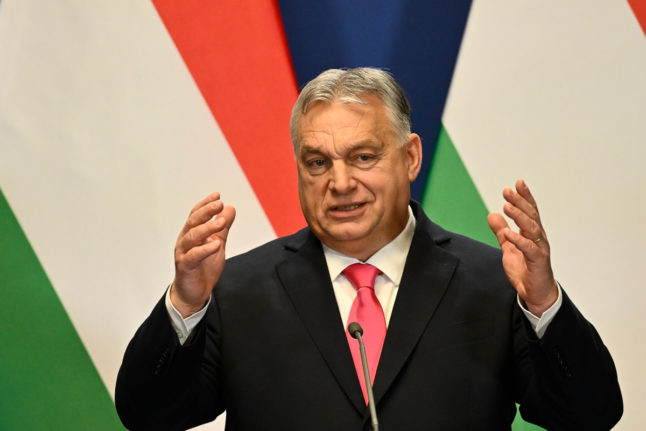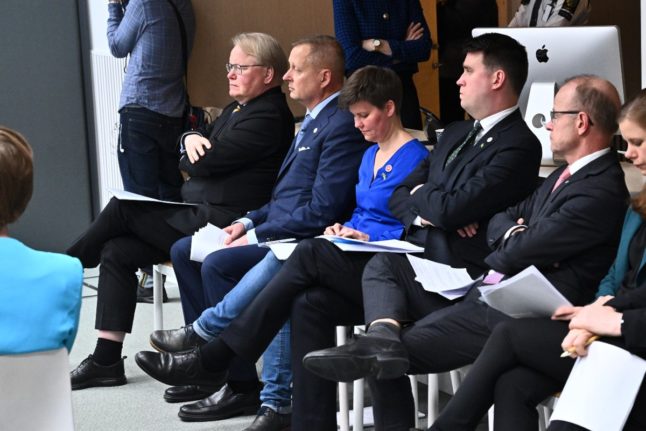Hungary and Turkey are the only holdouts in Nato not to have ratified Sweden’s bid to join the defence alliance in the wake of Russia’s invasion of Ukraine.
Turkey made its ratification of Sweden’s Nato application conditional on the US Congress “simultaneously” approving Ankara’s request for 40 F-16 fighter jets.
Hungary has repeatedly insisted it supports Sweden’s bid, but continuously dragged its feet on putting the issue for a vote in parliament.
Last September, Orban told parliament that ratifying Sweden’s Nato bid was not “urgent”, demanding “respect” from the Nordic country, a fellow EU member.
Budapest has often denounced what it called Stockholm’s “openly hostile attitude”, accusing Swedish representatives of being “repeatedly keen to bash Hungary” on rule-of-law issues.
Hungarian Prime Minister Viktor Orban’s chief of staff, Gergely Gulyas, on Thursday noted a lack of “confidence-building steps” from Stockholm to improve relations.
Gulyas described their relationship as “legally an alliance, but can hardly be considered friendly”.
“I must therefore conclude that for Sweden, rapid Nato accession is not a priority at this time,” he added.
The senior government official suggested the Swedish government “should get in touch, ask what concerns the Hungarian Parliament has and what they can do about it”.
Responding to a question, Gulyas refused to reiterate an earlier promise by Orban – whose party alliance holds a supermajority in parliament – not to be the last to ratify Sweden’s bid.
“We want to avoid this situation, but without Swedish help, we probably can’t. If it is not important to the Swedes, why should it be important to us?”



 Please whitelist us to continue reading.
Please whitelist us to continue reading.
Member comments